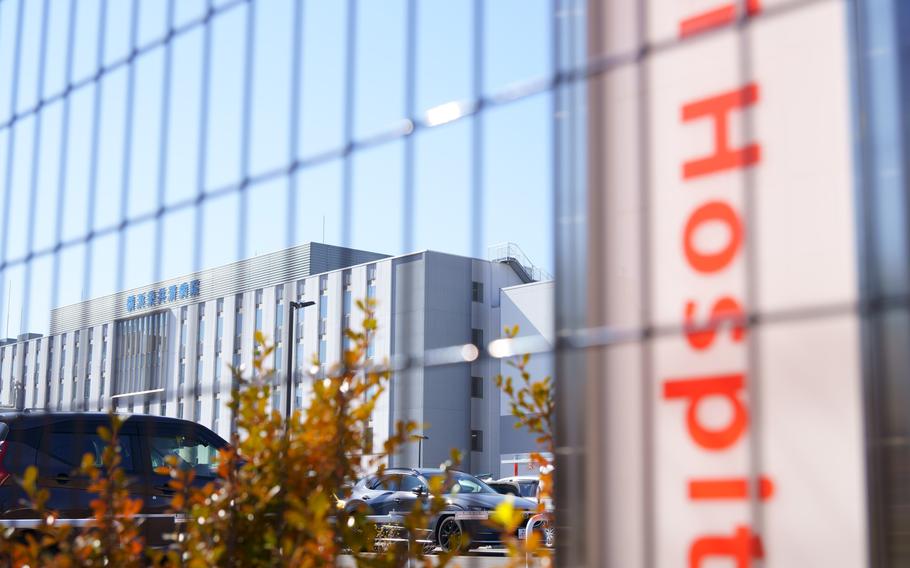
A pilot program from the Pentagon aims to assist Defense Department civilians with navigating Japan's health care system. (Akifumi Ishikawa/Stars and Stripes)
YOKOSUKA NAVAL BASE, Japan — The Defense Department is counting on the contractor that provides health care for military members overseas to create a provider network in Japan that accepts civilian employee health insurance without crippling upfront payments.
The DOD on Tuesday released updated details of its pilot program coming in January, including plans for a provider network that provides cashless and claimless health care services to program participants.
The $4.2 million, DOD-funded pilot program is administered by International SOS Government Services Inc., the primary contractor for the Tricare Overseas Program, the DOD health care plan for service members, their dependents and retirees.
International SOS already “has a long-established network of providers already identified in Japan,” DOD spokesman Joshua Wick said by email Friday.
The pilot program is open to DOD civilian employees enrolled in a participating insurance plan through the Federal Employees Health Benefits program. The Defense Health Agency in 2022 clamped down on those employees’ access to base health care facilities, saying federal law prioritizes service members’ care at those sites.
The pilot program features a 24/7 call center with bilingual staff and nurses that will help participants find health care providers, make appointments, secure direct billing and establish reimbursement procedures.
“These financial services will mitigate the burden of civilian employees paying upfront for care and locating a provider on their own,” an updated DOD fact sheet states.
Employees’ dependents and contractors, however, are not eligible for the pilot program that runs Jan. 1 to Sept. 29.
The DOD may add dependents or contractors to a future version of the program, after it assesses its performance. Monthly monitoring will begin in February to “test the feasibility and demand” for the program services, according to Wick.
Wick said it was “too early to speculate on future plans” including whether dependents or DOD contractors will be able to use the service.
The updated details released Tuesday came one day after open enrollment for federal benefits began.
The Japan Civilian Medical Advocacy Group took issue with that timing. The grassroots organization created an online forum for DOD employees to share tips on accessing health care and lobbied for changes like those in the pilot program.
“It’s disappointing to see poor communication practices regarding our community’s health care,” the group said in a Thursday post to Facebook.
The group’s post also highlighted concerns over references to the pilot as a year-long program when it’s scheduled for nine months, provides no guarantees for emergency health care at Japanese hospitals and excludes dependents.
Despite those concerns, the group encouraged members to “use the service for any and all occasions” and provide feedback.
Members of the advocacy group, when contacted Friday by Stars and Stripes via Messenger, said they had no additional comment.
The company also aims to provide written translation services for the issuance of guarantees of payments and other health care-related documents, according to the fact sheet.
Wick said DOD would use Defense.gov, direct email distribution, social media posts, AFN Japan and military treatment facility websites to provide updated information about the program.
“With all of these supporting tactics, the best communication is direct through command channels,” he said. “Our emphasis has been to deliver materials to the Military Services and Department of Defense agencies with employees in Japan and encourage them to directly deliver this information to their impacted employees.”